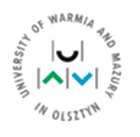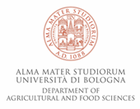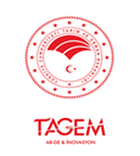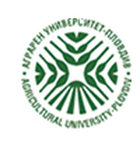
Dr. Michał Krzyżaniak
The University of Warmia and Mazury in Olsztyn (UWM) is composed of 17 faculties with over 20,000 students. UWM is a strong science and research centre. It is conducting over 250 projects funded by the Ministry of Science and Higher Education (MNiSW), National Science Centre (NCN), National Centre for Research and Development (NCBiR). The UWM has very well equipped laboratories, where even very complex research can be performed. The university’s potential for innovation is reflected by the number of applied and gained patents, implementations and utility models. The university own four agricultural farms, where strict field experiments can be conducted.
The tasks in this project will be carried out by the staff of the Faculty of Agriculture and Forestry. The department has 60 years of experience in problems related to agricultural production and the environment. The main research experiences that can be applied include: searching for new agrotechnical solutions in the cultivation of agricultural, horticultural, energy and herbal plants in organic and integrated systems; forecasting the yield of selected agricultural plants depending on selected climate change scenarios based on modern computer techniques; breeding new varieties of cereal, energy and horticultural plants using traditional breeding methods and in vitro techniques; genetic analysis of plant and microbiological material by molecular techniques; assessment of the degree of infestation of arable and forest plants by pests and methods of their reduction with the use of agrotechnical, biological and chemical methods; evaluation of energy and economic efficiency of crop production and environmental impact analysis by means of lice cycle assessment method.
In this project UWM staff will work mainly in three research areas: field trials with intercropping system, analysis of genetic diversity, integrated sustainability assessment and project coordination. The first area will include field trials with camelina intercropping systems. In Poland, these systems will include plant species such as: spring camelina, spring pea or lentil and spring spelt. UWM will run two variants of intercropping systems in WP 2. UWM will be also leader of task 2.3. "Upscaling at farming system level".
Moreover, employees will be engaged in analysis of the genetic diversity of camelina, not excluding other species like spelt, pea or lentil. The leading work package 4 on integrated sustainability assessment will also be a major research challenge carried out by UWM. In this task we will try to answer, through multicriterial analysis, to the question: how intercropping systems with camelina cultivation influence the sustainability in terms of energy, environmental and economic categories. The scope of the research will include analysis of energy efficiency, life cycle assessment (LCA) and life cycle cost (LCC) assessment, including external environmental cost assessment.
The data obtained in above mentioned tasks will be used carry out a SWOT analysis and to prepare a final report on integrated sustainability assessment intask lead by University of Plovdiv. Project coordination of consortium built form 6 partners located in 4 different countries and close coordination of activities and tasks will be required to ensure that deliverables and milestones are achieved as planned.
Therefore Coordinator task is will be: the promotion and supervision of the overall technical, organisational and scientific progress of the project; ensuring the proper operation of the project: work plan compliance, monitoring project progress, analysing results, identification of problems and consequences for future work progress, overseeing, with the help of the WP leaders, the writing of periodic reports (progress and financial) on the project and partner activities.

Dr Federica Zanetti
Since its origins in 1088, the University of Bologna (UNIBO) has been student-centered hosting prominent figures from science and the arts. UNIBO invests in the multidisciplinary cross-cultural approach, research and teaching. UNIBO has formed knowledge alliances with industries and public/private organizations and is a hub of international networks. UNIBO has gained a considerable experience in International and European projects and successfully participated so far in 238 funded projects in H2020. At EU level, UNIBO is part of the Scientific Advisory boards of FACCE JPI, member of the EIP AGRI Focus Group Water & Agriculture.
In the SCOOP project, UNIBO will be represented by the Dept. of Agricultural and Food Sciences (DISTAL) which is the largest dept. of UNIBO including 150 professors and research scientists. DISTAL provides nation and worldwide research leadership in the subjects of crop production, sustainable agricultural systems and crop physiology.
Scientific team: Dr Federica Zanetti (female, Assistant Professor) has a PhD in Environmental Agronomy. She is an expert in agronomy and physiology of oilseed crops. She has been involved in several international and national projects mainly focused on the introduction of new oilseed crops and grain legumes under sustainable agronomic management. She is currently the president elect of AAIC (Association for the Advancement of Industrial Crops). Author of about 40 peer review articles (H-index 13).
UNIBO will actively collaborate to each of the SCOOP WPs with the other partners. UNIBO will collaborate with AIAB for the establishment and empowerment of the living lab in Italy within WP1. UNIBO will lead WP2, and in particular will lead the task on plot trials in intercropping systems which will be established in the organic experimental farm own by UNIBO. It will also participate to all the other tasks of the WP2, in view or its expertise on camelina and biodiversity assessment particularly at below ground level.
In WP3 UNIBO will be in charge of the seed separation and cleaning trials on the seeds harvested from the plot trials by means of the equipment and infrastructure owned. UNIBO will also collaborate with CRIFIC taking care of part of the analysis to determine the quality parameters of harvested seeds.
In WP4 UNIBO will participate providing data collected within WP2, in particular Tasks 2.2-2.4, for setting up the integrated assessment of the SCOOP intercropping systems. Finally, in WP5 UNIBO will collaborate with AIAB on the preparation of the SCOOP website which will be hosted in the UNIBO portal. Furthermore, as all the other SCOOP partners, UNIBO will actively participate to the dissemination and exploitation of the results.

Dr Reyhan Bahtiyarca Bagdat
Central Research Institute of Field Crops (CRIFIC) is a Research Institution was found in 1926. The major task of the Institute is; to provide new crop varieties using conventional and molecular breeding methods. Collection and conservation of plant genetic resources and make them available to be use in research and breeding activities. Contribute to the development of agricultural sector by improving proper varieties and agricultural technologies to meet demands of growers, agricultural industries and consumers. The Institute has a Research and Application Farm in Ikizce, Haymana province around 600 ha. We’re also evaluating our plant accessories regarding their quality characteristics, technological aspects and their resistance to the pest and diseases. Their contributions to crop rotation and soil nutrition, microorganisms and fungi are also our interest.
CRIFIC is going to take several tasks in the SCOOP (Task 2.2., 2.4. and 3.2)
Quality and Technology Department has been working to analyze the quality characteristics of legumes, cereals, oil crops and Medicinal and Aromatic Plants (MAPs). Turkish National Seed Bank is also working for CRIFIC which is mainly concerned on conservation, collection and molecular-morphological characterization of plant genetic resources, especially genetic diversity of field crops and their wild relatives. Turkish Seed Gene Bank consists from the following units: Documentation, Seed Cleaning, Drying and Packaging, Seed Physiology, Cold Storage Rooms, Characterization, Production, Herbarium and Molecular Biology.
Plant Pathology Department is working on; 1) Intensifying efforts on economically important diseases of cereals and legumes, 2) Collaborate to the other disciplines such as breeding, agronomy, technology, genetic resources and economics/extension, 3) Evaluate the plant materials of national and international Institutions (ICARDA & CIMMYT etc.). Biotechnology Research Center is mainly working on shorten the breeding periods by double haploid and using speed breeding techniques in plant breeding.

Dr Cristina Micheloni
AIAB staff will be involved in the project implementation as follows: Cristina Micheloni (WP1, all tasks, training, setting up, facilitating and monitoring of LL); Michela Mazzali (journalist and responsible of communication in AIAB, in WP5 (T1.1 and T51.); two other professionals will be selected and enrolled for the activities in WP1, WP2, WP3, WP4 and WP5. The 2 persons will be selected on criteria of: knowledge and experience in organic arable systems; background in participatory approach; basic knowledge of facilitation techniques and groups management.
Cristina Micheloni is a free lance consultant and president of the Friuli Venezia Giulia AIAB chapter. Senior researcher and adviser involved in research participatory projects involving farmers and other actors: ORWINE (FPV), STABIWINE (FPVI), OK net Arable, Winetwork and Ok Net Ecofeed (H2020), Agrilink (H2020) and Moving (H2020). Since 2019 she is leading a privately funded project on organic camelina that includes the cultivation in 5 Italian regions, the processing in a pressing plant in Verona area and several uses as feed, food and cosmetics.
She is also currently involved in farming digitalization projects such as IOF2020 (H2020) and TheFSM (H2020). She has a 20 years experience in participatory approach, experience now useful for the management of a Living Lab (that became a case study within the Agrilink project). She is also involved in EU regulatory development and member of Expert Group for Technical Advice in Organic Production, bringing the outcome of research projects as basis for regulatory definitions and policy action at EU and National level. She coordinated the EIP-AGRI expert group “Organic Farming” and currently engaged in Regional EIP-OGs

Dr Marina Marcheva
The Agricultural university Plovdiv founded in 1989 an Agroecological Centre with the aim of coordinating the efforts of researchers, students, farmers and consumers to carry out research and provide education and promotion of organic agriculture in Bulgaria. The Centre has been a member of the IFOAM (International Federation of Organic Agriculture Movements) since 1993. Since 1994 it has been functioning as a Demonstration Centre for biological farming. The Centre has facilities to train students, teachers, farmers, and agricultural specialists in the field of organic crop production. On the certified organic field are located field trials with cereals, pulses, berries, vines and fruit trees.
The produce obtained at the site of the Agroecological Centre is certified by “Balkan Biosert” (Bioproduct certificate № 00226) and it is marketed via the subscription system for bio-foods. In conventional plant breeding garden we maintain in vivo collection of camelina accessions with various origin and level of genetic improvement. Our previous researches on the evaluation of Camelina sativa genotypes (including last ones, still unpublished, from current project) show differences in production potential, oil content and fatty acid composition. Molecular analyses with ISSR markers showed genetic diversity between 52 of the genotypes.
Phenotyping, agronomical performance and adaptation to organic farming conditions of camelina will be evaluated in small plots on certified organic field of AUP. The positives of an intercropping systems with preferred pulse and the environmental impact s will be established as influence on the soil microorganisms diversity and soil fertility, weed, diseases and pest infestations dynamics and losses, reduction of CO2 emissions and changes in quality and quantity of grain yield and biomass production.
Large scale trials will be organized in organic farms in order to present the intercropping system in real farm conditions and promoting the projects to organic farmers and local communities. Genetic variability of camelina genotypes with different origin will be evaluated by molecular markers (ISSRs and other when applicable) and changes in the expression of genes, concerning fatty acid metabolisms in organic solo and intercropping system and conventional mono cropping system will be established.
The economical assessment (important costs and revenues) of the intercropping system will be discussed in initial Living Labs and will be used in SWOT analysis of significant strengths, weaknesses, opportunities and threats. Dissemination of the project results will take place on open field days and wlorking seminars with researchers, producers and other actors of the food chain. Field plots will be used for working seminars with students and practitioners during the vegetation of the crops. Scientific results will be published in scientific open access journals, referred in the primary databases. Presentation on the project will be made on conferences and seminars.

Dr Barbara Michałowska
The tasks in this project will be carried out by our staff that has a strong background in agriculture, especially in organic one. Our main experience, which will be utilized in this project, is connected to organic large field trials cultivation of oil and cereal crops like camelina or spelt. Our team also poses an equipment and an experience in commercial seed cleaning of various type of crops. Moreover, we cooperate with many organic farmers and companies from organic food industry, which can be another asset, especially when it comes to creating stakeholder groups.
In this project Biosfera will work in three tasks: empowerment of local communities, especially organic farmers, camelina intercropping in large scale field trials, and post harvesting seed processing. The first task will will be done in T 1.3, especially connected to contacting farmers and other stakeholders of organic community. Moreover in WP2 Biosfera will be engaged in large-scale trials. Biosfera will be also leader of task 3.1 "Post-harvest seed processing", where our staff will evaluate best cleaning setting for camelina and a companion crop. Finally, Biosfera will deliver data for energy efficiency, economic analysis and life cycle assessment, especially regarding large scale cultivation of intercropping system and seed cleaning.